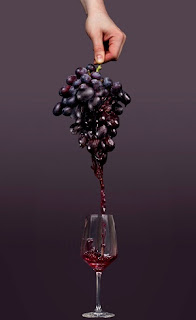Wine was a way of life in the ancient Mediterranean. David Gianulias is from a Greek family who can trace their roots back to ancient times. The Gianulias family has a long history of private winemaking, and the tradition has been passed on for centuries. Carrying on this tradition, David Gianulias founded Levendi Winery in 2000. After three years of carefully crafting their unique wine, Levendi sold its first bottle in 2003. Greek winemaking is a tradition that dates back thousands of years. Wine was a major commodity in the Mediterranean and an integral part of daily life for both Greeks and Romans.
The Greeks have been enjoying wine for over 4000 years. Numerous archaeological sites throughout Greece and ancient Greek colonies have evidence of wine and wine making. The earliest evidence of wine in Europe was found in the Eastern Macedonia region of Greece. Archaeologists have been studying this settlement site, name Dikili Tash, since the nineteenth century. However, in recent years, archaeologists have found traces of wine. They unearthed ceramic vases that contain residue of fermented grapes. The vases, and in turn the wine, were dated to 4200 BCE.

Wine only came second to the gods in ancient Greece. The Greeks worshipped a god named Dionysus, who was the son of Zeus and Semeli. He is a god of fruitfulness, vegetation, ecstasy and wine. The Greeks held festivals in honor of Dionysus. One of these festivals was called Anthesteria and was held in Athens in either February or March. This festival celebrated the beginning of spring, and the matured jars of wine that were ready to be opened. It was a three-day festival. The first day was referred to as the Pithoigia, or jar opening, and offerings were made to Dionysus from these freshly opened jars. This festival was filled with performances and wine drinking contests. The Greeks spent those three days celebrating their wine and their deity.
The Greeks traded their wine throughout the ancient world. There is archeological as well as written evidence of their wine trade. In his epics, Homer discusses the shipment of wine, and the enjoyment of wine in Greece. The Greeks shipped their wine inside of sealed amphorae, which was a tall jar with a narrow neck and two handles. Each city-state and region throughout Greece used a different style of amphora, which made it easy for modern archaeologists to determine which regions traded the most wine. Chios, Lemnos, Rhodes, Lesbos, Crete, Thrace, and Macedonia were all popular wine producers and traded their wine throughout the ancient world. Wine trading was sophisticated and organized in Greece and the ancient world. David Gianulias is from a Greek family and is continuing a centuries old tradition of winemaking and selling.
The Greeks have been enjoying wine for over 4000 years. Numerous archaeological sites throughout Greece and ancient Greek colonies have evidence of wine and wine making. The earliest evidence of wine in Europe was found in the Eastern Macedonia region of Greece. Archaeologists have been studying this settlement site, name Dikili Tash, since the nineteenth century. However, in recent years, archaeologists have found traces of wine. They unearthed ceramic vases that contain residue of fermented grapes. The vases, and in turn the wine, were dated to 4200 BCE.

Wine only came second to the gods in ancient Greece. The Greeks worshipped a god named Dionysus, who was the son of Zeus and Semeli. He is a god of fruitfulness, vegetation, ecstasy and wine. The Greeks held festivals in honor of Dionysus. One of these festivals was called Anthesteria and was held in Athens in either February or March. This festival celebrated the beginning of spring, and the matured jars of wine that were ready to be opened. It was a three-day festival. The first day was referred to as the Pithoigia, or jar opening, and offerings were made to Dionysus from these freshly opened jars. This festival was filled with performances and wine drinking contests. The Greeks spent those three days celebrating their wine and their deity.
The Greeks traded their wine throughout the ancient world. There is archeological as well as written evidence of their wine trade. In his epics, Homer discusses the shipment of wine, and the enjoyment of wine in Greece. The Greeks shipped their wine inside of sealed amphorae, which was a tall jar with a narrow neck and two handles. Each city-state and region throughout Greece used a different style of amphora, which made it easy for modern archaeologists to determine which regions traded the most wine. Chios, Lemnos, Rhodes, Lesbos, Crete, Thrace, and Macedonia were all popular wine producers and traded their wine throughout the ancient world. Wine trading was sophisticated and organized in Greece and the ancient world. David Gianulias is from a Greek family and is continuing a centuries old tradition of winemaking and selling.